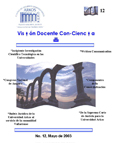ABOUT WRITTEN COMMUNICATION:
Good reasons to write By: Ricardo Simental Zapata
Written communication sets the real beginning of civilization; it was not only reaching abstraction what separated man from the rest of the species; it was not only the first outline of an idea but the capacity of transmitting that idea, of giving name to things and giving that name to other things: rocks, dust, even flesh what did it. Material objects stopped being the only thing in man's voice and immaterial subjects took advantage.
Writing is what then creates the genesis and is in its written form that history takes place and order and becomes the beginning.
Man writes since the beginning of time, thinking of that other not known man, sure that by its writing someone else will know of its existence.
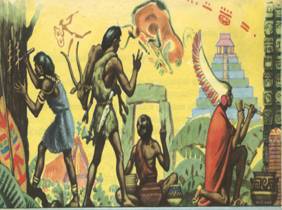
Hieroglyphic?, Sanskrit?, Graffiti? Or eternal search? Here was Sancho
This is how in man's mind emerges the real consciousness of being gregarious. Phobias, fears, feelings, all that was only ghosts take form and are mould into symbols others can identify… That is when man knows he really is not alone.

It took thousands of years for a man to say the opposite with terrible sense: Jorge Luis Borges.
He sentenced “we are alone”. He believes we see from the inside and considers we are trapped in that being that we are and that that is why we, humans, write: to avoid ourselves from fading, leaving ourselves for ever as ghosts on the memory of others and with no possibility of redemption, because no one else ever will or can be us.
That is why transmitting the idea, (that can refer an action, an instinct, a feeling, an imagined story, felt, lived or intuited) takes the transcendence of communion to which we are now not used to anymore. The letters, the edicts, the narratives had always played a fundamental role, not only in the in the organization of societies but also in their conception as part of the world. Today, in this modern world, with its craziness and its lack of mysteries –since we seem to think we know it all- has lost respect for the written, even though paradoxically it uses it to proclaim it.
THE IDEA
An idea finds creation and advance through the word, and through writing assures its right interpretation and expands in human mind.
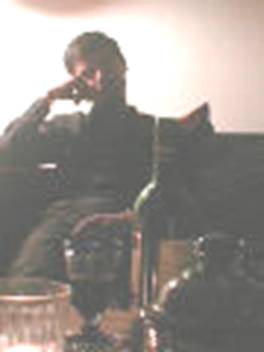
Expanding the idea is the key. Giving us the opportunity to profile it, to take it by surprise from different angles, to half pillage it converted into the trivial. Forcing the mind a bit to leave the routine and add it into ones favor.
THE IMAGE OF THE IDEA
Suddenly what one is awakens. One realizes that one has not really been thinking but re passing what one knows or is supposed to know. The surroundings stop dilating, to focus on a point, a shape, a piece of furniture... The idea has arisen and there is room for nothing or no one else.
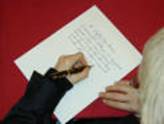
FREEDOM
Expressing the ideas, the arguments of life, the anxieties and worries, the emotions, is possibly the most complete way of practicing freedom.
In a personal writing, we are really we. Our language takes rhythm, deepness and the people that reads us perceives us with and in a bigger dimension of what we are. And if what is said is true or sounds true; and if what is said makes sense or at least tries to, then we will find ourselves repeated on someone else's mind, and corrected if there's luck.
That is why our law guarantied freedom of speech following the example of other societies; because the legislator knew of the strength and power ideas take when mould and shared: An increase on the dimension that progressively forgets the individual and penetrates the social conscience.
Nothing has the strength of a collective conviction. And that's why, at least why, we should cultivate the virtue of writing; make an occupation of it, a vice if wanted. We should realize how little wisdom is worth when not shared. Also, realize that to share wisdom, it is always good to have a listener, but it is best to have a reader.

But if having the idea still the necessity of deciding: should I write this?
What for? Whom for?,
emerges:
THE RESULT WILL GENERALLY BE ONE LESS WRITTEN TEXT AND AN ORIGINAL CONCEPTION ON AN ISSUE LOST FOREVER.
We do not write because we do not think it important. And we don't read because we think it dispensable. We act like the citizen who does not vote, because he cannot believe in the power of voting and when he sees such power exists, when he realizes he lives in a democratic society, then he does not think it necessary. Believing –conveniently- that other citizens will do what he doesn't do and resigning without thinking, to be a part of what is being built; resigning to the complicity of what's being destroyed, resigning to be listened when things, as mostly happens, go wrong.
The truth is that the immense possibilities given to us with writing and reading (which includes a process of abstraction, research, thinking, study, learning) are denied by our tendency to react instead of act; to receive knowledge instead of undertake the search; to believe instead of discover. All this despite knowing the source of discovery is always around. Anywhere we look, we find an available publication.
But, if we free ourselves from that indolence, if we write not mattering the range of the writing; not mattering if it is a diary, a letter, an essay, a thesis, a story tale or a novel; then a creative power –that should not be denied or underrated- will be exercised, specially if done under full conscience of what it involves.
Because on that exercise, no matter how brief, a communion takes place between the “I” that thinks and the “I” that lives, the anonymous “I” and the “I” that pushes or impels through others to win a place that feels its own.
And that “I” of ours (we don't even know sometimes), uses a personal and unique code: the message.
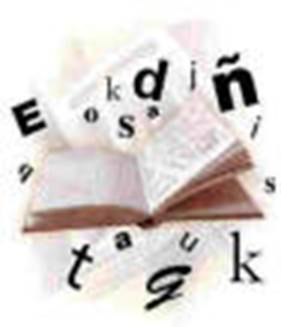
AND WHAT DOES THE MESSAGE CONSIST OF:
• Having something to say : an opinion that creates opinion, a kind phrase that creates other kind phrases, a concept that stimulates a reflexive thinking, a salute to time.
• Ordering ideas and data : Guiding the reader, writing down with our very own language what one tries to say, trying to make the message comprehensible, first to oneself and then to everyone else.
• Exercising writing : Choosing the words, using every available tool. We might never be writers, but we will inevitably have a better and wider vocabulary.
The message is the shape of the idea; the intention of the one that writes. And it is always a call to others -in one way or another- what reaffirms the social conscience; the value of individuals as part of that society and the functions those individuals allow or abrogate themselves.
That call does not affect the independence of the one that emits it, on the contrary, it tends to involve the people it reaches and works as a multiplier of messages, because the ones that receive it, almost always respond, even if they don't agree with what is said.

ABOUT WHAT IS SOWN DURING THAT STRANGE PROCESS OF THINKING…
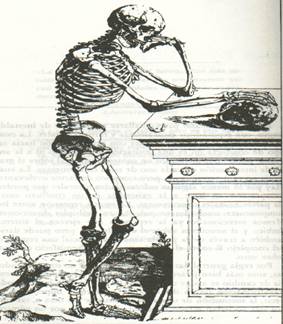
THE MIND THAT THINKS, READS
“The writer literally says the unsaid, what no one wants or can say. That's why every important literary work becomes a high-tension cable, not electrically but morally, esthetically and critically speaking.” Octavio Paz
Nothing is ever complete or finished. There's no subject that won't admit a new reflection, a different approach.
And that is where the practical reasons to write come from:
• To share information
• To avoid forgetting
• To convince
• To accomplish
THE MIND THAT FEELS, INTUITS
“This is where we were meant to live, what are we to do? In the most transparent region of the air” (Carlos Fuentes on the lips of Ixca Cienfuegos)
There is no aspect of life unrelated to our interior being. Our senses show us a material world full of immaterial manifestation. We love and hate with our neurons but the heart has always been recognized, because somewhere between the mind and the body, the spirit resides. That's where the impractical reasons to write come from:
The impractical reasons:
• Feeling much more
• Making feel
• Reinventing oneself
• Enjoying oneself

BEING A LISTENER AND BEING LISTENED
For professionals and students about to become it, it is all about avoiding what Victoriano Garza Almanza says in an excellent article published in a newspaper, where he refers the high percentage of graduated college students that don't get their Diplomas because of the lack of ability to write and complete their thesis:
“Contemporary society, where information has become such an important thing, does not rule itself for what it is said but for what it is written. What's wanted to be said or done has to be put into words. Mexican is by antonomasia handicap of the written communication, and that's something to be corrected by the public power and the university” to stop the country from getting full of a graphic professionals.”

I find important to add to Garza Almaza's words that the students should make a decision about it, trading apathy and insensitiveness for two fundamental steps:
• TO WRITE FIRST
• Limited resources don't mean to limit horizons
There's people who have traveled all over the world and have only taken pictures, being careless of the approach of what's essential: the human part. That approach to people, to what they are, their suffering and joys, their convictions and problems, is given by the reading of their literary work, their magazines and pamphlets. That's why it is said traveling illustrates, but if traveling isn't possible, the best alternative is to read.

• The classics or monumental literary works are not as heavy as they seem
Because of our reading habits, a written work gets away or close to us not because of its author, quality or content, but because of the thickness of its volume, the title, the recommendations or the obligation to read it.
Sadly, -and with no full conscience of what we resign to- we stop finding ourselves with that other written reality, argumented, informed, veracious even in its own fiction, without even looking at it.

Limiting our reading, we spare a luxury of loosing invaluable information, of deepening on our knowledge, of having access to a level of abstraction that isn't common in modern life, thou it is in its instruments: math, science, financing theory, political perception…
• Imagination works and it is also valid
From the shoulders of Homer, Verne, Asimov, Quiroga, Arreola, Fuentes, Garcí Marquez, Dostoievsky, Tolstoi, Cortazar and so many others, we have found ourselves with that prodigy of the mind imaginations is. And we have found it in the best of its manifestations: creation.
That creative imagination has taken us throughout the ocean waters of the Egeo, through the unexplored North Pole. To a moon that turned out to be not made out of cheese but that despite it all, doesn't get rid of the moon man or the rabbit. Through the deepness of the ocean that is even more beautiful than Captain Nemo's one, towing us inside a submarine better than the ones we have today. Creative imagination has taken us to mars and all those other universes ambushing behind the door. It has taken us closer through that supposed fiction to a human vision where our superficiality has not access to, and thanks to that we can understand what's behind heroism and loyalty, behind hate and egoism. We can discover –draw by a master language- love and desire before they hide in the heart of the protagonist that we also are. We take a look at the solitary soul of the avaricious and to the visionary conscience of the martyr. Glimpsing, conceiving, if we really try to, the terrible face of humanity and behind it the omnipotent strength of the spirit and the mind. And then we realize we understand ourselves a bit more.

• AND THEN AFTER UNDERSTANDING TO WRITE, BUT ALWAYS
• One can do it.
Limitations aren't determined by the grade of education nor the ability. One determines them oneself, the same way one determines the level of conscience to which one wants to access.
• Others expect it .
Other people will welcome every message: people that are close to us, and people that coincide with our activities and surroundings.
• To read oneself and re-read oneself.
Reading what one writes allows, besides the chance to correct mistakes, to discover other angles that could have been used to approach what's been written. And then reviewing one self, the exercise continues…
OUR FUTURE: TO RESCUE THE WORD
The viability of a solidary and fair society, full and prompt with answers and slow in oppression, finds its opportunity only if we accomplish communication. As long as writing limits itself to the strictly necessary, we will continue creating an abysm among individuals that makes them stay and live in a limited surrounding that limits them not to know what's next no to conceive change and future
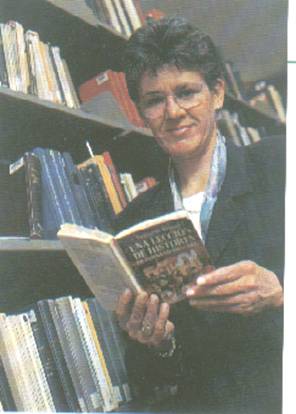
Despite of what we think and of the conveniences of modern life, our minds need continuous training on the comprehension; training on which reading is impresindible. Only from there could come a citizen that acts because his mind is active; the student that inquires because his mind isn't satisfied, the leader that doubts because he has understood his vision, before being messianic, is imperfect; we will see the individual that at the same time that fights everyday problems, searching for subsistence, knows and is conscious that someone else decides for him and that he is obligated to know what's being decided. That he should, wanting or not, know how to interpret the signs of our time like:
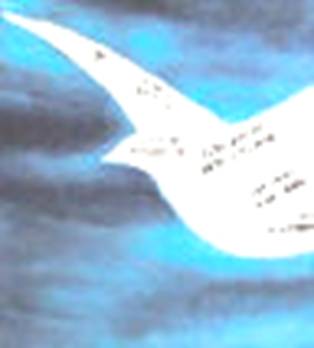
• The volatility of the financial systems and its unarmed condition to the attacks of speculation, specially in the poor world which is majority.
• The tendency to autoritarism with its load of rejection for the life and culture of different societies.
• The radicalization of religions and the lacks of use of principles
• The practice of discrimination, repeated even among the disfavored ones.
• The false elitism and discrimination that proclaims ethnic as well as technological supremacy
Reading – writing, will give us elements to judge and anticipate the changes of our world and will also give us the elements to interfere on them; to understand other worlds that coexist with ours, to throw away the fraud (deceit) of modernity, knowing that today and now no one is safe from manipulation and ignorance.

It's all about rescuing the word, of filling it of sense in what it refers to us and ours, into what's learned, into what's worked for. It is all about reading what's being written by ones and the others, about writing to oneself, to our beloved ones, to our people and nation, and why not, to the world. G
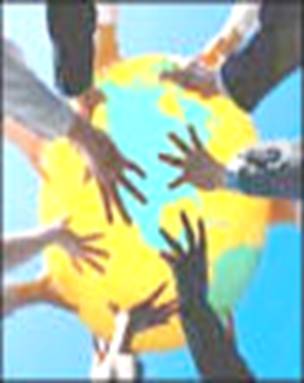
|


![]()
